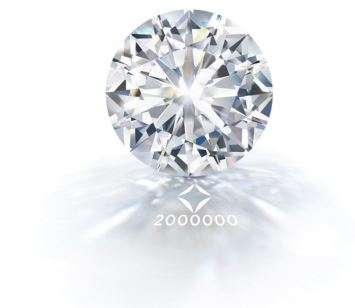
Diamond giants clash over verification and source disclosure

Heavyweight international diamond trader, the Rapaport Group, earlier this week levelled serious allegations against De Beers, accusing the world’s biggest diamond miner of intentionally obscuring the source of origin of the diamonds it markets across its extended sightholder network.
In a statement released on Tuesday, the Rapaport Group alleged that De Beers is destroying transparency in the diamond industry by not allowing its clients to disclose the source of their diamonds.
“The De Beers Group is refusing to allow its clients to disclose the legitimacy of diamonds from De Beers. All De Beers’ rough diamonds are now opaque. That’s 42% of the world’s legitimate diamond production in 2017, and US$14.993 billion of rough diamonds from 2015 through 2017,” Rapaport first said on their website, and then followed up the accusation with a widely distributed press release.
Windhoek-based Daniel Kali of the De Beers Group indicated to the Economist that any consideration of this issue requires all the relevant information to be made available. “We are proud of our progress in building an ethical supply chain in the diamond industry. We recognise that this work is never done, and we will always continue to review and refine our approach while remaining vigilant in protecting diamonds and the people who work with them. However, our activities will always be based on fair and reasoned discussion of the facts, and will not be influenced by distortions or misrepresentations,” he said.
According to the Rapaport Group, De Beers has invoked a clause in the Sightholder Signature Licence Agreement preventing any sightholder of disclosing the source of De Beers diamonds without their prior written consent. Rapaport also quoted a De Beers letter to clients in which the latter declined a request from the Gemological Institute of America to make provenance claims as part of its Mine to Market initiative.
“The net effect of De Beers’ action is to deny legitimate companies and non-profit organizations such as the Gemological Institute of America (GIA) the ability to track the legitimacy of polished diamonds,” Rapaport stated.
Clarifying their position, Kali said “the De Beers Group today provides all its Sightholders with the ability to confirm the ethical sourcing of rough diamonds purchased from our Global Sightholder Sales business. Every Global Sightholder Sales invoice issued to a Sightholder or Accredited Buyer comes with assurance that the diamonds are sourced from our four countries of operation: Botswana, Canada, Namibia and South Africa, and “are sold in accordance with the De Beers Best Practice Principles”. All our Sightholders today have the ability to pass this assurance on to their customers. In this way you can be fully confident in the ethical sourcing of all our diamonds today.”
Breaking the news of using the blockchain to track every diamond, Kali said “we have also made major investments in the development of an industry-wide blockchain platform that will enable all participants to track a diamond to its specific country of origin. We can’t do this today without the blockchain technology as our diamonds from the four different producer countries we mine from are blended together for sale. The blockchain will provide further vital assurance in this area and reinforces our commitment not only to ensuring there can be greater assurance claims in relation to diamonds of De Beers Group origin, but also for diamond production from across the entire industry. Blockchain will further provide the confidence that as diamonds pass through the distribution channel, claims about their origin can be fully guaranteed.”
Rapaport Group founder and chairman, Mr Martin Rapaport said “De Beers is extending its market power from rough to polished markets through exclusive polished distribution networks such as Forevermark. They are making it impossible for independent third parties to source-certify their diamonds, thereby disabling legitimate diamond distribution systems. De Beers is using its market power to restrain competition in the market for legitimate source-certified polished diamonds.”
Kali countered by pointing out that De Beers through its Best Practice Principles, have promoted ethical practices across the diamond industry for more than a decade adding that De Beers work with sightholders to elevate standards of financial reporting and transparency.
“De Beers Group is a founding member of the Responsible Jewellery Council (RJC), which conducts independent audits of our mining operations and has established recognised supply chain standards through industry-wide and multi-stakeholder collaboration,” Kali continued.
Touching on the scourge of conflict diamonds, Mr Rapaport said “with extensive human suffering in developing countries such as Zimbabwe, the Congo and others, as well as billions of dollars of diamonds not subject to human rights, AML and CTF compliance, the Rapaport Group begs De Beers to do the right thing and allow its clients to disclose the legitimacy of their diamonds.”









































